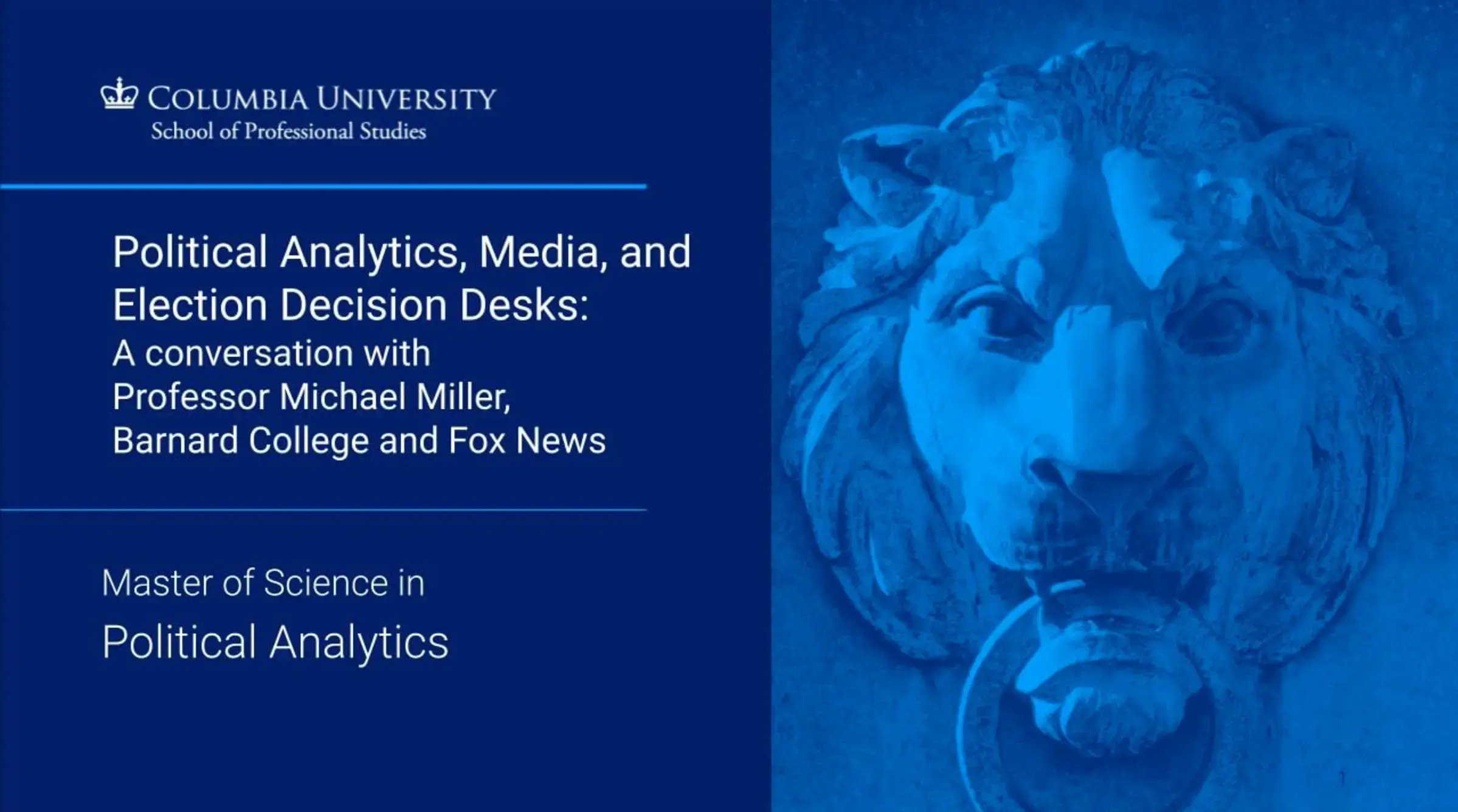Michael Miller is an associate professor of political science at Barnard College whose research is focused on political and voter behavior through the use of data analytics and statistical analysis. He is also an analyst on the Fox News Decision Desk, where he helps project who might win—and lose—on election night.
Recently, Gregory Wawro, the director of the M.S. in Political Analytics program, interviewed Miller about the nature of political analytics, why it's important, and how Columbia’s M.S. in Political Analytics gives students the skills and training necessary to work as a political analyst, political journalist, data journalist, or data analyst.
Miller has worked for the Fox News Decision Desk since 2017. As part of his work there, Miller uses statistical modeling to try to predict the winner of an election before all of the votes are officially tallied (which can take days and perhaps even weeks). This is done by getting vote counts as soon as they come in and using the data from exit polling, a survey method where voters are asked who they voted for as they leave the polling station.
As the data becomes available, Miller said, he and others on the Decision Desk “provide a briefing to everyone who’s going to be on camera that night, let them know what the data says, and provide any particular insights that might be hard to glean for someone who’s maybe not trained at looking at this data or just surprising and newsworthy tidbits that we think the public ought to know.”
Although newscasters can explain the election results and polling data in a way that is easy for the viewing audience to understand, political analysts like Miller spend months behind the scenes crafting sophisticated statistical models. Part of the essential skill set for a political analyst who works on a decision desk, said Miller, is “to be able to synthesize data using a number of different coding systems and to work with data that comes in various formats.”
He added: “Skills as a data scientist are really important. Statistical skills are obviously important, too, because we first build the models, and then we have to be able to analyze the results in a statistical way. So those are the core skills. But I think being able to work as a member of a team in a high-pressure environment, and to be able to stand in there when you do feel that pressure—and there is a lot of pressure when you’re on TV and [doing] election coverage, even if you’re just behind the scenes—to get it right.”
Miller said he finds the work rewarding: “I do believe in the work, and I think it's work worth doing for the good of the country and the public. And I certainly value the opportunity to do it.”
About the Program
The Columbia University M.S. in Political Analytics program provides students quantitative skills in an explicitly political context, facilitating crosswalk with nontechnical professionals and decision-makers—and empowers students to become decision-makers themselves.
The 36-credit program is available part-time and full-time.
For general information and admissions questions, please call 212-854-9666 or email politicalanalytics [[at]] sps [[dot]] columbia [[dot]] edu



